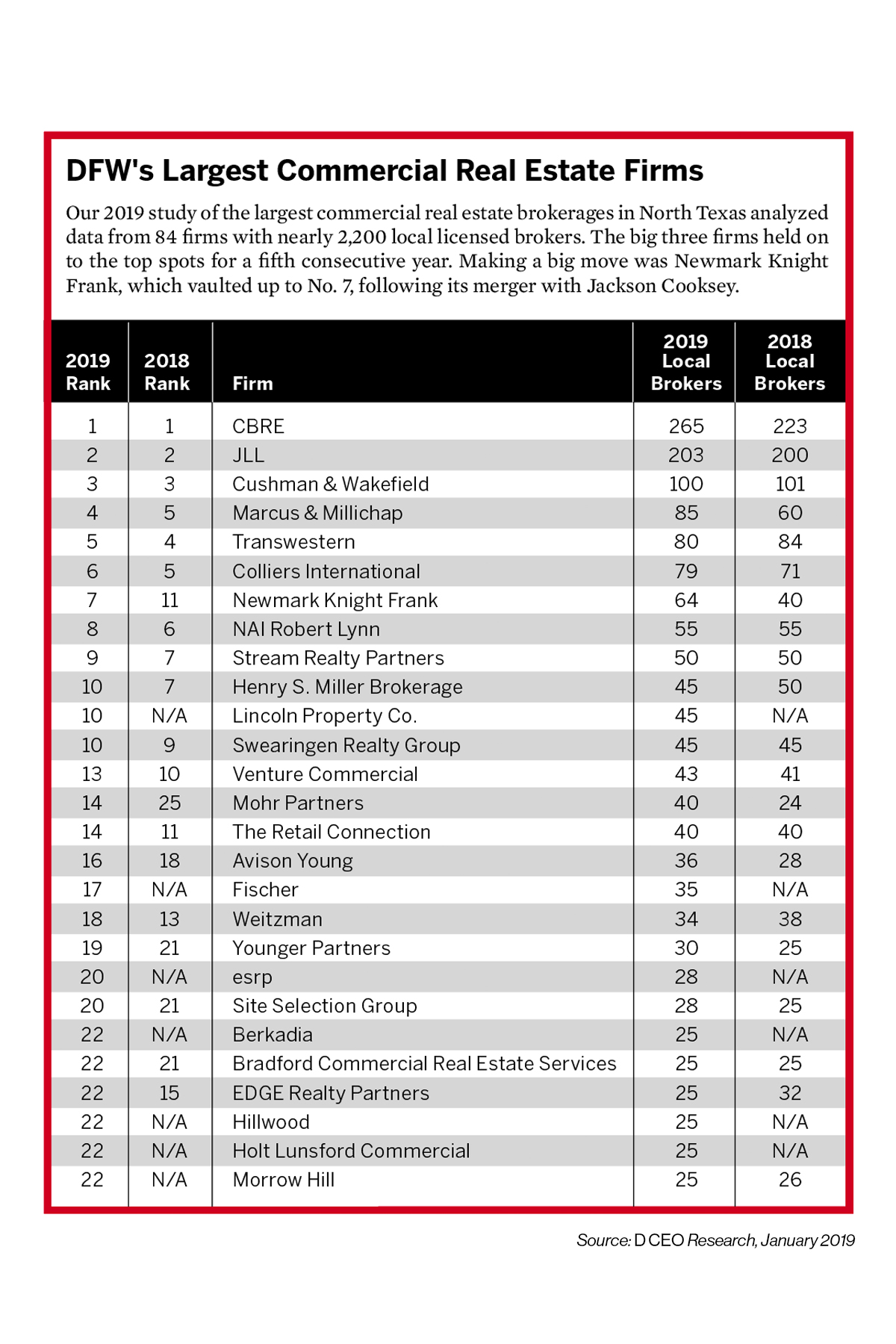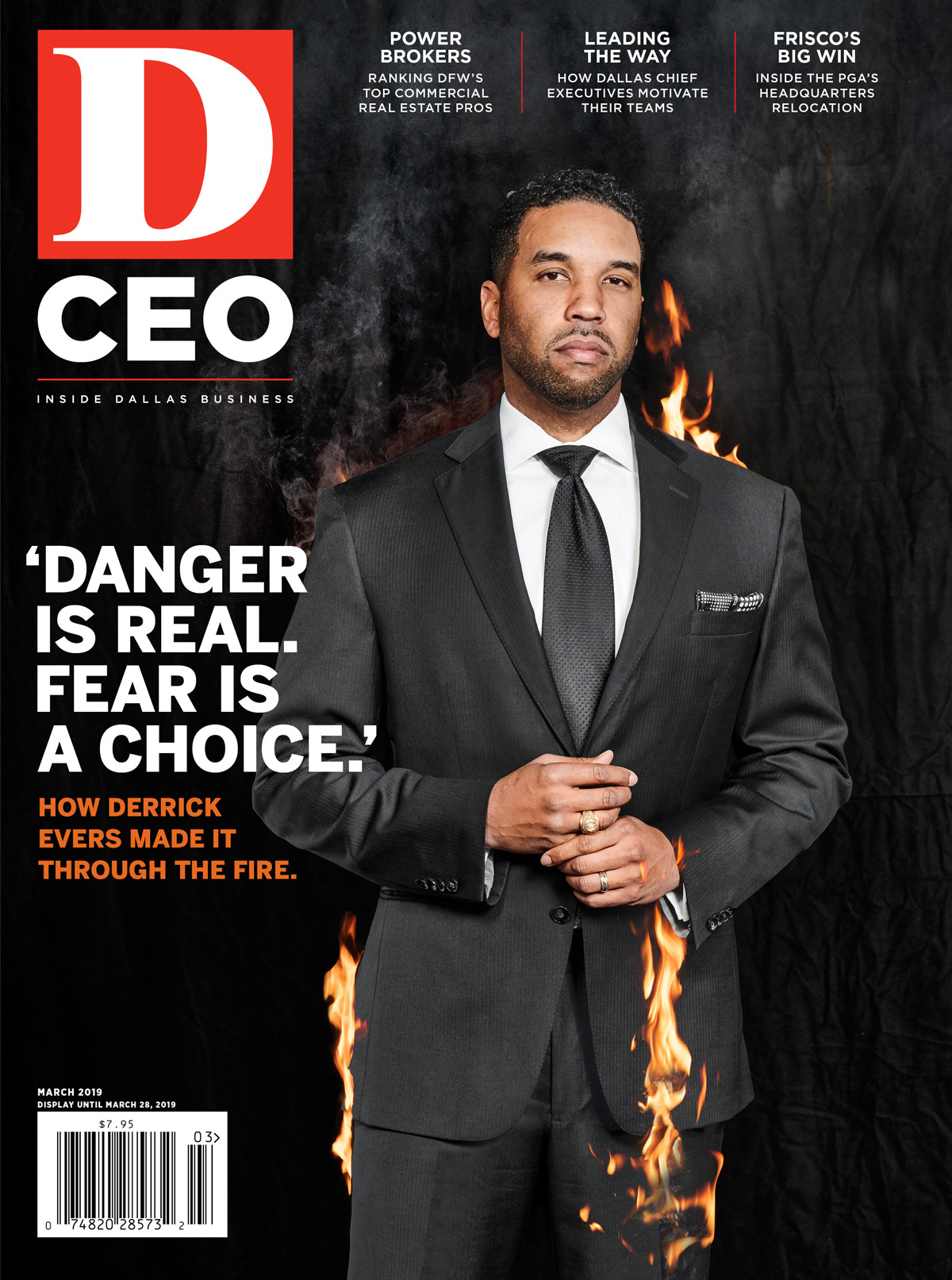“It’s kind of like you went from being a trumpet player to having to be a symphony conductor,” says Grant Pruitt, founder and managing director of Whitebox Real Estate. “Clients have gotten savvier. They are demanding more from their providers; they’re demanding more resources from their providers.”
This, in a nutshell, is the essence of the changes that have fundamentally transformed commercial real estate in recent years. Driving it all is a paradigm shift in client expectations. To survive, brokers—and the companies that employ them—have been forced to adapt.
“We can’t do deals the way we did in the past,” says Chris Teesdale, executive vice president at Colliers International. “It’s sort of a trickle-down effect, if you will, because clients are getting pressure from their customers. As a result, they’re pushing some of that pressure down on the service providers to be more timely. This has become a 24/7 business, because clients are operating 24/7.”
Today’s real estate firms look a lot more like high-level consultancies than they do old-school brokerages. With the future a fast-moving target, occupiers are looking for efficiencies, flexibility, and guidance that has more to do with their business operations than the simple leasing of space.
“Office tenants are looking for buildings and amenities to give them an edge in the recruitment and retention of millennial employees.’”
Kim Butler,irector of Leasing, HALL Group
“Real estate no longer about, ‘Hey, do you like this one? Do you like this one? Oh, you like this one; let’s do a deal here.’ That’s maybe how it was back 40 years ago,” Teesdale says. “But it’s no longer just a real estate transaction—it’s a whole lot more.”
On the industrial side, distribution center decisions must now factor in complicated logistics strategies. And on the office side, it’s all about the war for talent. In a tight labor market with many businesses vying for the same potential employees, a company’s space can make all the difference in recruitment.
In the past, workers would chase jobs. These days, companies are chasing talent. Real estate decisions have very little to do with where the CEO lives and everything to do with demographic data.
“It used to be when you had a company come in to tour space, you had the CEO and the real estate director,” says Kim Butler, director of leasing for HALL Group. “Now, because where a company locates its office is such an HR-driven decision, you have the CEO, the real estate director, and the head of human resources. Brokers on the tenant rep side have really had to beef up their game on HR-related items.”
Office tenants are looking for buildings and amenities to give them an edge in the recruitment and retention of millennial employees. “It’s a tight labor market, so they really want to make sure that the location they’re choosing is an extension of their brand and is going to help them in their quest to get the best and the brightest,” Butler says.
Game-Changing Technology
Commercial real estate has been one of the slowest industries on the uptake in the information age. In a business built primarily on maps and handshakes, the need for data-driven decision-making took some time to surface. But now, the change has come and flipped a switch that can’t be unswitched. Baby-boomer brokers, who started their careers with just a Rolodex, phone, and a desk, are having to figure out how to use exceptionally sophisticated data tools.
“I recently heard someone say, ‘Things are changing faster than they ever have, and they will never change as slow as they are today.’ That is so true in our business,” says Brooke Armstrong, executive vice president at JLL.
Firms have had to make huge capital investments in technology to keep up with client expectations—and their own competition. The demand for granular data has also created a movement toward specialization. Jack-of-all-trades brokerage just doesn’t cut it anymore, especially for those who serve large customers. That has led solo brokers to build teams that include incentives, labor, tax, and other data experts.

“Our customers are in a hyper competitive situation themselves, both with their external competition and with retaining and recruiting top talent,” Armstrong says. “We have more generations working together in the workforce than we ever have before, and all of those factors combined really force people to be a lot more sophisticated in their decision-making.”
Lease rates remain an important consideration, but it’s no longer the primary one. If more expensive space will pay for itself in the recruitment and retention of employees, it will trump rents.
Tenant reps are tasked with the challenge of helping clients future-proof their space decisions. And the longevity of those decisions is getting compressed, Armstrong says. “People still are looking to sign long-term leases—10 or 15 years—but we have to start thinking about how quickly those decisions are going to become obsolete,” she says.
A Vital Link
The essence of the business remains unchanged; brokers are still connectors. What has changed is the number of things they are required to create connections between. Although real estate is still indelibly a people business where the “location, location, location” matters, client value grids have evolved.
Having the right team and mix of specialties is critical for success. Hence, the need to become a symphony conductor instead an individual instrumentalist.
As commercial real estate firms work to specialized teams, they’re having to make adjustments in how they hire—much like the companies they serve. In the past, it was mostly a “who you know” game, with new talent largely coming from relationships, family lineages, or fraternity connections. Today, it’s more “what you know,” and real estate firms are looking for talent with all manner of perspectives and experience.
“I think we are opening our eyes to the fact that we need people very diverse backgrounds in order to best serve our clients,” Armstrong says.
As brokers continue to bridge the gap between what has worked in the past and what is required in the future, look for those who understand both to continue to succeed.






